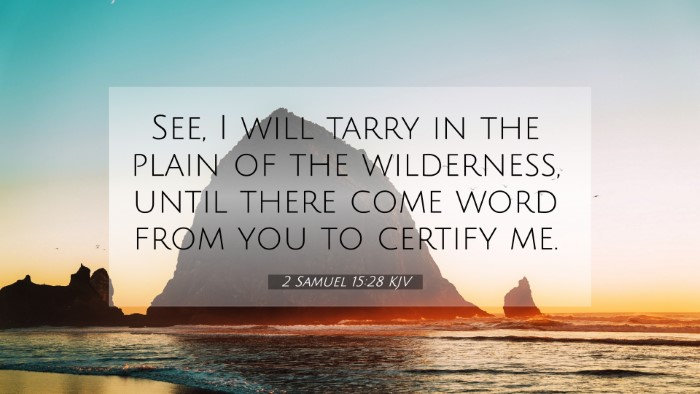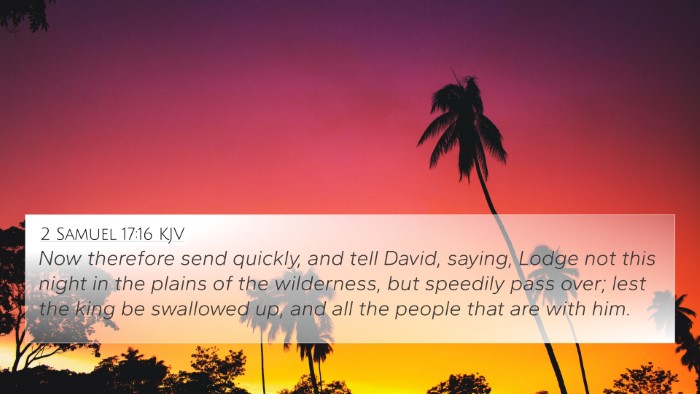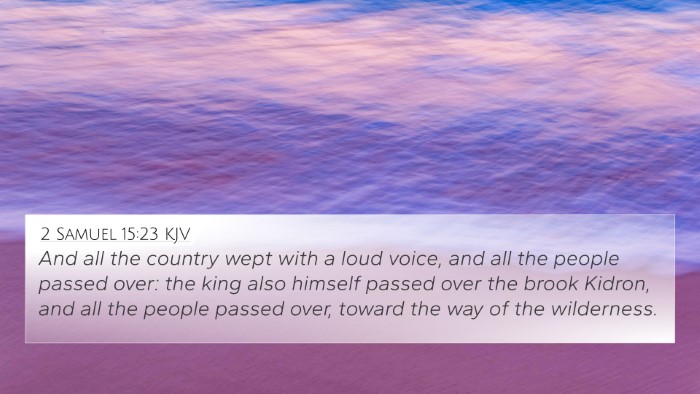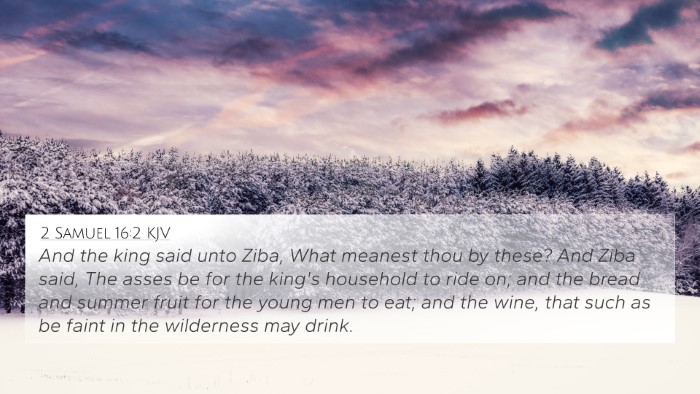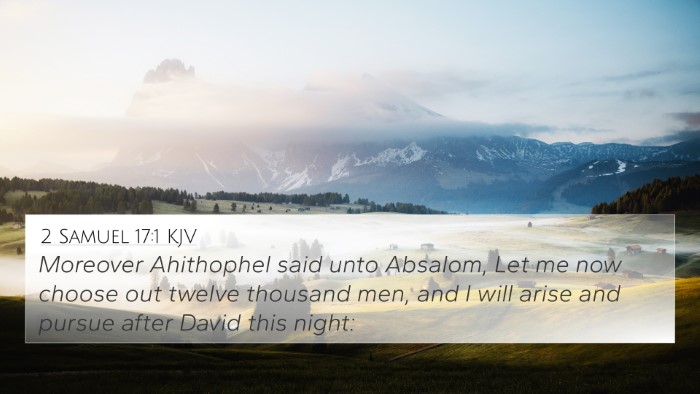Understanding 2 Samuel 15:28
Verse: "See, I will wait at the fords of the wilderness until word comes from you to inform me."
Summary of the Verse
This passage depicts a moment of strategic patience and communication between David and his loyal supporters. David is portrayed as a king aware of the political and social tumult surrounding him, particularly during Absalom's rebellion. He opts for a careful approach, preferring to wait for information before taking action.
Commentary Insights
Insights from renowned commentaries help illuminate the depth of this verse:
- Matthew Henry: Henry emphasizes David's prudence and reliance on God's timing. He notes that waiting reflects wisdom and the need to evaluate situations before proceeding. This response is a model for believers, highlighting the importance of patience and seeking divine guidance.
- Albert Barnes: Barnes points out the significance of the wilderness for David. It signifies a place of testing and preparation, reminding us that sometimes leading requires solitude and reflection. His location at the fords symbolizes a strategic point of decision-making, emphasizing the need for believers to carefully choose their battles.
- Adam Clarke: Clarke discusses the communal aspect of this waiting period. David’s command reflects a leader’s duty to safeguard the interests of his people. His reliance on trusted informants underscores the importance of communication and unity in times of crisis.
Bible Cross-References
Several other scriptures provide additional context and insight related to 2 Samuel 15:28. Here are some notable connections:
- Psalm 31:14-15: David expresses his trust in the Lord amidst adversity, which aligns with his decision to wait on God's word.
- Proverbs 16:3: This verse encourages believers to commit their plans to the Lord, linking to David's strategic waiting.
- 1 Samuel 23:2: This passage highlights the importance of inquiring of the Lord, reflecting David's reliance on divine guidance in his leadership.
- 2 Samuel 2:1: Demonstrates David seeking the Lord’s direction in his decisions, reinforcing the theme of waiting for God's timing.
- Psalm 37:7: Advises believers to be still before the Lord and wait patiently, echoing David's actions.
- Isaiah 40:31: Encourages waiting on the Lord, strengthening the idea of patience in divine guidance.
- Romans 8:28: Reminds us that God works for the good of those who love Him, aligning with David's faith in ultimate outcomes despite current struggles.
Thematic Connections
2 Samuel 15:28 weaves a critical narrative within the broader themes of leadership, trust, and waiting on the Lord.
- Leadership: David's actions illustrate qualities of a wise leader who weighs his options carefully, demonstrating the necessity of patience and discernment.
- Trust in God: The verse reflects a deep sense of reliance on God’s timing and communication, crucial for spiritual success.
- Strategic Waiting: This narrative teaches the importance of waiting for the right moment—an invaluable lesson for believers in times of uncertainty.
Applications for Today
Understanding this verse can greatly enhance our approach to challenges we encounter:
- Patience: Like David, we should practice patience, trusting in God's timing for clarity and guidance.
- Communication: Emphasize the importance of open lines of communication, especially in community and leadership contexts.
- Faithfulness: Maintain faith in God’s overarching plan even amid turmoil—qualities that build resilience in our spiritual journeys.
Conclusion
In summary, 2 Samuel 15:28 serves as a profound reminder of the importance of waiting for divine guidance, the nuances of leadership, and the significance of communication throughout life's challenges. With insights from classical commentaries, it merges well with themes present throughout the Bible, encouraging believers to engage in scriptural cross-referencing for a deeper understanding of faith and action.
Final Thoughts
For serious students of the Bible, employing tools for Bible cross-referencing, such as concordances and cross-reference guides, can deepen understanding further. Engaging in comparative Bible verse analysis may reveal more intricate connections between these themes and narratives, providing valuable insights for personal study or sermon preparation.


